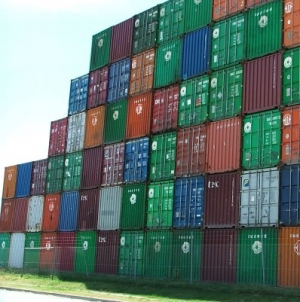MEAT, FORESTRY and dairy all contributed to seasonally adjusted export volumes falling 5.3% in the June quarter, while import volumes rose 3.6%, Statistics New Zealand says.
"Export volumes recorded their largest fall since the March 2008 quarter," international statistics manager Jason Attewell says. "This was due to falls from high levels in key primary products."
Seasonally adjusted meat export volumes fell 8.3%, forestry volumes fell 8.3%, and dairy volumes fell 2%.
Seasonally adjusted import volumes rose 3.6%, continuing a series of rises that began at the start of 2013. Capital goods led the rise this quarter, accompanied by rises in other key import groupings.
The trend for import volumes has been rising for seven consecutive quarters – by a total of 19%.
The terms of trade for goods rose 0.3% due to export prices falling less than import prices. "This is the lowest of six consecutive quarterly rises for the terms of trade, which is now 1.3% below its all-time high in the June 1973 quarter," Attewell says/
Terms of trade is a measure of the purchasing power of New Zealand's exports abroad. An increase means New Zealand can buy more imports for the same amount of exports.
A strengthening New Zealand dollar had a downward influence on import and export prices.
The price of exported goods fell 2%, with dairy prices falling 4.3% and forestry product prices falling 6.5% (influenced by a large fall in log prices).
Prices for imported goods fell 2.3%.. The fall was broad based. Petroleum and petroleum products (down 3.9%, due to lower prices for crude oil) contributed the most to the overall fall.
The price and volume indexes for exports and imports of goods are compiled mainly from overseas merchandise trade data.











